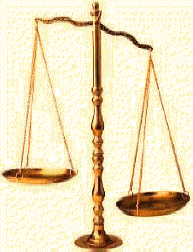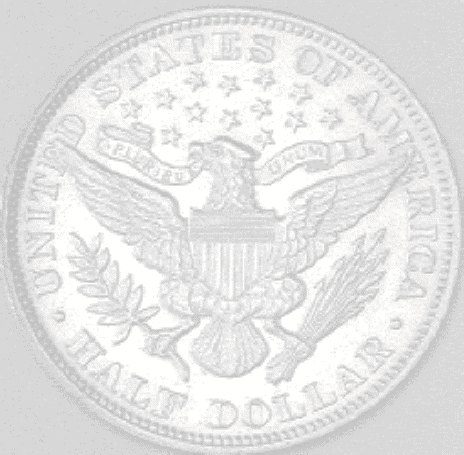
|
|
||
|
|
|
|
|
|
||

-50-
FOR BETTER OR WORSE:
While Mr. Johnson may speak disparagingly of President
Jackson saying, "Jackson has occasionally been labeled an economic
illiterate, and it does appear that he neither understood nor
sympathized with the function of money and banking" (10), the truth of
the matter is that “under the dedicated leadership of President
Andrew Jackson the National Debt was reduced to zero --the only time in
our entire history when the United States Government owed nothing"
(Griffin, 176)! * He did it by halting Government paper "money," and by
encouraging a policy of "hard money."
* According to the Coinage Act of 1792, the "money of account of the United States shall be expressed in dollars." The Act, which has never been repealed, defines a "dollar" as a weight of gold or silver. The "dollar" of gold was to weigh 27 grains with 24.75 grains of pure metal; and the "dollar" of silver was to weigh 416 grains with 371.25 grains of pure silver.
If the United States is no longer using this standard, then it is incorrect to express the "money" thereof as "dollars." And, if the present standard is expressed by the Federal Reserve Bank of Chicago as "just a piece of paper", then it is not possible that a national “deficit” exists. If the currency in use has a pretended value, then debts arising from it are imaginary as well.
"Secretary of the Treasury
William Duane declared he had considered the Bank charter
unconstitutional from the beginning and that he had been opposed to
recharter from the beginning" (White, 304).
John Randolph was opposed to all banks. He affirmed
that if a bank was unable to pay specie it was bankrupt, and if it
was able to pay it and refused to do so, It was fraudulent (White,
278).
Mr. White wrote, "Both (Banks)
stumbled over politics, and broke their necks. If any persons think that
a new Bank of the United States would be more fortunate in this regard,
I am not of that number” (259).
There were other experiments in banking.
The Suffolk Bank System
The Suffolk Bank of Boston, Massachusetts was chartered in 1818. At the time of its charter there was paper "money" in Boston that was both “current and uncurrent." * The country banks of New England were typically wildcat in nature being banks of issue but they carried little or no specie to substantiate their purported value. While this plague was not confined to New England, yet New England was the first section of the country to drive out the plague, and it did so by utilizing the system designed by the Suffolk Bank.
* “Current" paper refers to that issued
by local banks. Boston had 7 banks possessing more than half the banking
capital of New England, yet their notes represented only 4 percent of
the circulating paper “money." (White, p. 325)
"Uncurrent" Paper refers to that issued by banks elsewhere, either in
the state of Massachusetts, or by any of the country banks in New
England. (White, p. 324)
Banking officials at the
Suffolk conceived the idea of requiring country banks to keep on deposit
sufficient funds to redeem their notes that would reach Boston. When the
country banks expressed indignation, the Suffolk officials collected
their notes and returned them for redemption in specie.
In 1824, in a communication to other Boston banks, the
Suffolk officials explained how the country banks had control over the
financial market with their irredeemable bills: they simply capitalized
on the difficulty and therefore the uncertainty of redemption. At the
suggestion of the Suffolk bank, the Boston banks agreed to form an
alliance requiring each country bank to make a permanent deposit with
the Suffolk of 2000 "dollars" or more, depending upon the amount of its
capital, and an additional sum judged essential to redeem all its notes
that appeared in Boston (White, 327).
In 1845, the state of Massachusetts passed a law
prohibiting any bank from redeeming the notes of any other bank but its
own. Therefore, all banks had to forward their "uncurrent" notes to the
Suffolk.
